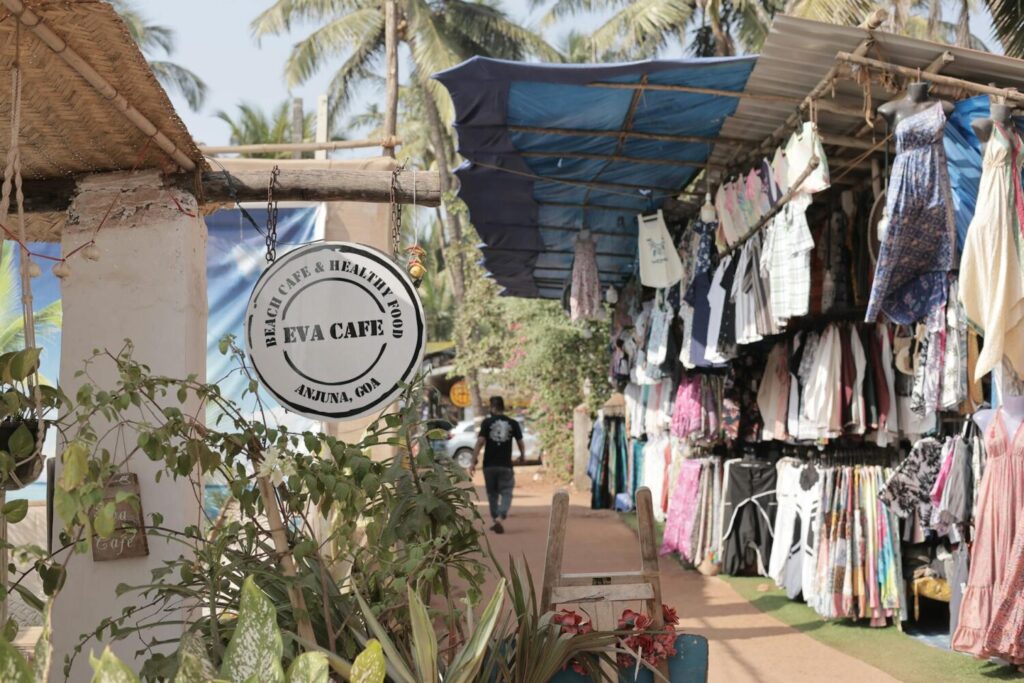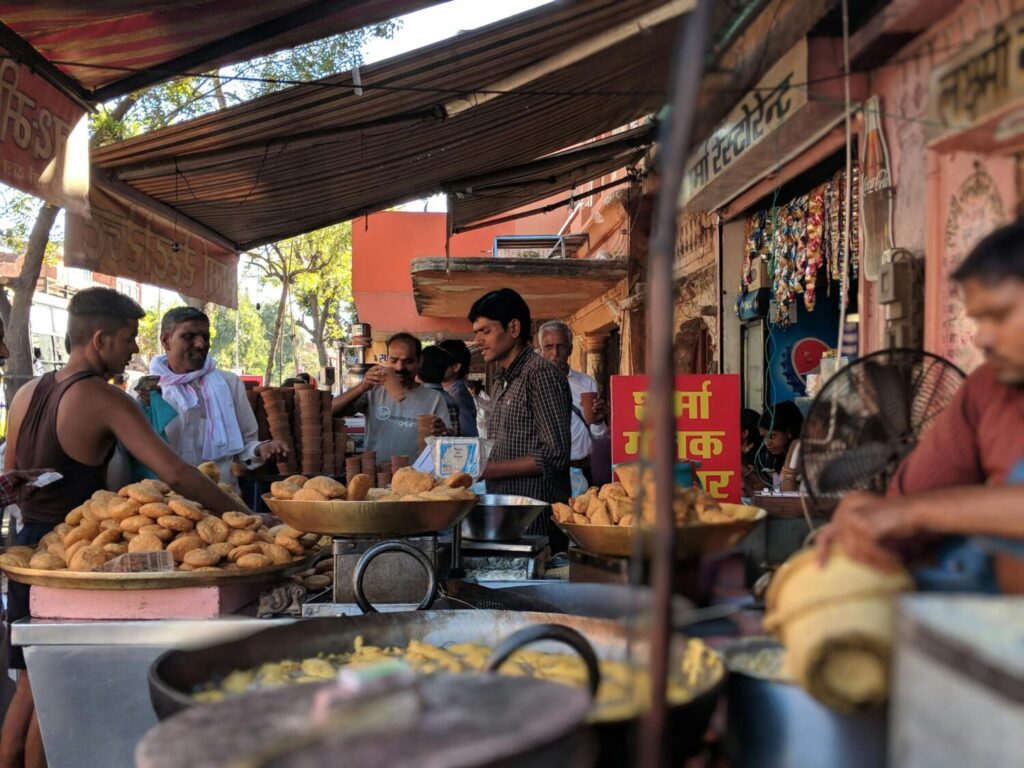The global startup ecosystem is undergoing a seismic shift, with Tier 1 cities like San Francisco, Beijing, and Bangalore maintaining their dominance, while Tier 2 cities—such as Jaipur, Kochi, and São Paulo—emerge as vibrant hubs of innovation.
In India, this trend is particularly pronounced, with Tier 2 and Tier 3 cities driving economic growth through lower costs, untapped markets, and robust digital infrastructure.
This article explores the current state of startups in Tier 1 and Tier 2 cities globally, with a deep dive into India’s top urban centers, their financial data, population, purchasing power, and high-growth sectors.
We also highlight how YTC Ventures empowers investors and B2B customers to tap into this dynamic ecosystem, with exclusive opportunities in India’s rising cities.

Tier 1 vs. Tier 2 Cities: The Global Startup Landscape in 2025
Tier 1 Cities: The Established Powerhouses
Tier 1 cities remain the global engines of startup activity, commanding the majority of venture capital (VC) and hosting tech giants. According to StartupBlink’s 2025 Global Startup Ecosystem Index, San Francisco leads with nearly two-thirds of global VC funding, followed by Beijing, New York, and Bangalore. These cities offer:
- Robust Infrastructure: Access to top universities (e.g., Stanford, IITs), incubators, and accelerators.
- Talent Pools: Highly skilled professionals in AI, fintech, and SaaS.
- Investor Networks: VC firms like Andreessen Horowitz and Sequoia Capital dominate funding rounds.
In August 2024, Indian Tier 1 cities raised ₹14,029 crore across 48 deals, with an average deal size of ₹140 crore. Globally, 24 Tier 1 cities account for 75% of VC investment despite housing just 4% of the world’s population.

Tier 2 Cities: The Rising Stars
Tier 2 cities, with populations typically between 1–5 million, are gaining traction due to affordability, digital penetration, and government incentives. In India, cities like Jaipur, Indore, and Coimbatore are fostering startups in agritech, edtech, and B2B supply chains.
Globally, cities like São Paulo and Singapore are valued at $144–$158 billion, driven by fintech and agritech. Key advantages include:
- Lower Costs: Cheaper real estate and operational expenses compared to metros.
- Untapped Markets: Addressing local problems, like ShopKirana in Indore, which streamlines grocery retail supply chains.
- Digital Connectivity: India’s Tier 2/3 cities had 299 million internet users in 2020, projected to reach 900 million by 2025.
In 2023, Indian Tier 2/3 startups raised ₹1.13 trillion, with deal sizes in August 2024 averaging ₹169 crore, outpacing Tier 1 cities’ growth in per-deal investment.

Capital Investment: Where the Money Flows
Tier 1 Cities
Tier 1 cities dominate VC funding due to established networks and perceived lower risk. In 2022, San Francisco startups raised $35.55 billion, while London secured $12.9 billion. In India, Mumbai and Delhi alone accounted for over 50% of VC investments in 2024.
- Major Players: Firms like Top Tier Capital ($3.7B assets under management), Andreessen Horowitz, and Creandum lead investments in AI, biotech, and SaaS.
- Challenges: High costs and market saturation push investors to seek fresher opportunities in Tier 2 cities.
Tier 2 Cities
Funding in Tier 2 cities is growing rapidly but faces hurdles like investor bias toward metros. In India, 40% of Tier 2/3 startups struggle with funding access. However, deal sizes are catching up, with Coimbatore’s Leap Green Energy raising ₹1,671.20 crore in 2024.
- Major Players: Stride Ventures (47 deals in H1 2025) and Alteria Capital (42 deals) back startups like Kochi’s FarmEasy and Bhubaneswar’s HealthNest.
- Small Investors: Angel networks like Mumbai Angels and YNOS Angels are active in Jaipur and Indore, offering seed funding and mentorship.
India’s Urban Powerhouses: Financial Data and Growth Sectors
India’s Tier 1, Tier 2, and Tier 3 cities are reshaping the startup landscape. Below is a detailed list of India’s top cities, their population, purchasing power/market size, and sectors poised for growth in 2025–2030, based on nominal GDP and economic trends.
Tier 1 Cities in India
Tier 1 cities are India’s economic backbone, with high population density, robust infrastructure, and significant GDP contributions.
| City | Nominal GDP (2025, USD Billion) | Population (2025, Est.) | Purchasing Power/Market Size | Sectors to Grow (2025–2030) |
|---|---|---|---|---|
| Mumbai | $310 | 22.09M | High; 65% of HNIs prefer real estate, mutual funds | Finance, IT, Entertainment, Real Estate, Media |
| Delhi | $294 | 34.67M | High; 50% rise in Demat accounts | Government, IT, Telecom, Manufacturing, Retail |
| Bengaluru | $110 | 14.40M | High; ₹14,029 crore in VC deals (2024) | IT, Startups, Aerospace, Biotech, Electronics |
| Chennai | $79 | 12.34M | Moderate-High; growing SIP contributions | Automotive, IT, Electronics, Healthcare, Petrochemicals |
| Kolkata | $150 | 15.85M | Moderate-High; 30% mutual fund AUM growth | Finance, Trade, Ports, Textiles, Chemicals |
| Hyderabad | $75 | 11.34M | High; IT-driven wealth creation | IT, Pharma, Biotech, Real Estate |
| Pune | $69 | 7.53M | Moderate-High; 25% executive salary premium | Automotive, IT, Education, Manufacturing, Research |
| Ahmedabad | $68 | 9.06M | Moderate-High; 33% HNI growth | Textiles, Chemicals, Petrochemicals, Engineering |
| Surat | $60 | 8.58M | Moderate; 80% of India’s diamond industry | Diamonds, Textiles, Trade, Synthetic Fibers |
| Visakhapatnam | $44 | 2.53M | Moderate; rising port-driven commerce | Port & Shipping, Steel, Petroleum, Tourism |
Notes:
- Purchasing Power/Market Size: Reflects HNI wealth, Demat account growth, and mutual fund/SIP penetration. Tier 1 cities have higher purchasing power due to established industries and financial literacy.
- Sectors: Driven by existing industrial strengths and projected growth in digital, sustainable, and regional markets.
Tier 2 Cities in IndiaTier 2 cities are emerging as investment hubs with lower costs and growing industries.
| City | Nominal GDP (2025, USD Billion) | Population (2025, Est.) | Purchasing Power/Market Size | Sectors to Grow (2025–2030) |
|---|---|---|---|---|
| Jaipur | $22 | 4.41M | Moderate; 33% HNI growth, 50% Demat rise | Tourism, Handicrafts, Gems & Jewelry, Textiles |
| Lucknow | $16 | 4.29M | Moderate; growing SIPs, IT hubs | Government, Education, Retail, Handicrafts, IT |
| Chandigarh | ~$15* | 1.30M | Moderate; high living standards | IT, Manufacturing, Services, Education |
| Kochi | ~$14* | 2.20M | Moderate; port-driven commerce | Tourism, Shipping, IT, Real Estate |
| Indore | ~$13* | 3.28M | Moderate; 33% HNI growth, clean city | Pharma, IT, Education, Real Estate |
| Coimbatore | ~$12* | 2.16M | Moderate; textile hub, IT growth | IT, Real Estate, Textiles, Engineering |
| Nagpur | ~$11* | 3.10M | Moderate; logistics-driven market | Warehousing, IT, Agriculture, Logistics |
| Bhopal | ~$10* | 2.57M | Moderate; Smart Cities Mission boost | Manufacturing, IT, Education |
| Patna | ~$9* | 2.50M | Low-Moderate; rising retail | Education, Retail, Agriculture |
| Raipur | ~$8* | 1.80M | Low-Moderate; industrial growth | Steel, Manufacturing, Agriculture |
Notes:
- GDP Estimates: Marked with * are approximations based on regional economic trends, as specific GDP data for Tier 2 cities is less comprehensive.
- Purchasing Power/Market Size: Reflects rising HNI populations, Demat account growth (50% in Tier 2/3), and SIP contributions (40% increase).
- Sectors: Aligned with government initiatives (e.g., Smart Cities Mission) and regional strengths.

Tier 3 Cities in IndiaTier 3 cities, with populations of 0.1–1 million, are regional hubs with growing potential.
| City | Population (2025, Est.) | Purchasing Power/Market Size | Sectors to Grow (2025–2030) |
|---|---|---|---|
| Mysore | 1.40M | Low-Moderate; tourism-driven | Tourism, IT, Education |
| Varanasi | 1.60M | Low-Moderate; religious tourism | Tourism, Silk Weaving, Retail |
| Thrissur | 0.90M | Low-Moderate; gold trade hub | Trade, Agriculture, Retail |
| Jalandhar | 1.10M | Low-Moderate; sports goods market | Sports Goods, Agriculture, Manufacturing |
| Gwalior | 1.50M | Low-Moderate; trade growth | Real Estate, Trade, Education |
| Salem | 1.20M | Low-Moderate; textile hub | Textiles, Agriculture, IT |
| Madurai | 1.70M | Low-Moderate; cultural tourism | Tourism, IT, Retail |
| Vijayawada | 1.80M | Low-Moderate; commerce hub | Retail, IT, Agriculture |
| Meerut | 1.90M | Low-Moderate; industrial growth | Manufacturing, Retail, Education |
| Nashik | 2.00M | Low-Moderate; wine, agriculture | Agriculture, Tourism, Manufacturing |
Notes:
- GDP Data: Unavailable for most Tier 3 cities; economic activity is smaller but growing.
- Purchasing Power/Market Size: Lower than Tier 1/2 but rising with digital financial inclusion (90% of Indians have bank accounts).
- Sectors: Focus on regional strengths and government-backed infrastructure projects.

Projections for 2025–2030
The next five years will see a decentralization of startup ecosystems globally and in India:
- Tier 2 Growth Surge: Indian Tier 2 cities will capture 20–30% more VC funding by 2030, driven by policies like Smart Cities Mission (₹1,47,704 crore invested by 2024) and Digital India. Over 50% of India’s startups will operate outside Tier 1 cities by March 2025.
- Sector Focus: Agritech, edtech, and healthcare will dominate Tier 2/3 investments, addressing local needs (e.g., Indore’s Gramophone for farmers, Kochi’s Genrobotics for sanitation).
- Global Expansion: Tier 2 cities like São Paulo and Singapore could double ecosystem valuations to $300 billion by 2030.
- Investor Diversification: Angel investors and family offices will increase investments in Tier 2 cities, seeking 15–20% higher returns than Tier 1.
- Challenges: Funding gaps, regulatory hurdles, and financial literacy gaps in Tier 2/3 cities will persist but ease with infrastructure improvements.
Why YTC Ventures? Unlock India’s Startup Potential
YTC Ventures, accessible at www.ytcventures.com, is your gateway to India’s booming startup ecosystems, particularly in Tier 2 and Tier 3 cities.
Inspired by innovative frameworks (evoking structured, high-impact opportunities), YTC Ventures connects investors and B2B customers with high-potential startups in emerging hubs like Jaipur, Kochi, and Indore.
For Investors: Exclusive Offerings to Join YTC Ventures
YTC Ventures empowers investors—angel investors, family offices, or first-time backers—to capitalize on India’s Tier 2 and Tier 3 cities, where startups offer 15–20% higher returns due to lower valuations and untapped markets. Here’s why you should sign up at www.ytcventures.com:
- Curated Deal Flow: Access a vetted pipeline of startups in high-growth sectors like agritech (e.g., Jaipur’s FarmEasy), edtech, and healthcare, filtered by city, sector, and growth stage.
- High ROI Potential: A $100,000 investment in a Tier 2 startup (e.g., Indore’s ShopKirana) could yield 3x returns by 2030, compared to 1.5x in Tier 1 cities.
- AI-Driven Analytics: Leverage YTC Ventures’ proprietary AI tools to identify high-potential deals, assess risks, and optimize portfolios across Tier 1 and Tier 2 cities.
- Mentorship Network: Connect with industry experts and co-investors, including access to YTC’s exclusive events in cities like Bangalore and Chandigarh.
- Social Impact: Support startups solving real-world problems, like Kochi’s Genrobotics (sanitation) or Bhopal’s HealthNest (telemedicine), aligning profits with purpose.
- BUDDHA-369 Initiative: Join YTC’s unique program inspired by spiritual and economic harmony, offering curated investments in sustainable startups across Tier 2 cities.
Call to Action:
Seize the Tier 2 startup revolution! Sign up as an investor at www.ytcventures.com and explore exclusive opportunities in India’s emerging hubs. Contact the YTC Ventures team at investments@ytcventures.com (mailto:investments@ytcventures.com) or +91-93803-76-419 to start building your portfolio.
For B2B Customers: Seamless Solutions with YTC Ventures
YTC Ventures bridges businesses with innovative startups in Tier 2 and Tier 3 cities, delivering cost-effective, localized solutions. Whether you need supply chain optimization or AI-driven analytics, YTC Ventures has you covered.
- Custom B2B Matching: Submit your requirements at www.ytcventures.com, and YTC Ventures matches you with startups like ShopKirana (Indore) for retail logistics or Bijak (Gurugram) for agricultural trading.
- End-to-End Support: From request submission to solution delivery, YTC Ventures ensures seamless collaboration with vetted startups.
- Access to Innovation: Tap into Tier 2 startups’ solutions, such as Coimbatore’s Leap Green Energy for sustainable power or Nagpur’s logistics platforms for warehousing.
- YTC Framework: Engage with YTC’s structured B2B matchmaking process, designed for precision and scalability, ensuring your business needs are met efficiently.
Key Players and Contacts
Major Players
- Stride Ventures: 47 deals in H1 2025, focusing on agritech and edtech in Tier 2 cities. Contact: info@strideventures.in (mailto:info@strideventures.in).
- Alteria Capital: 42 deals, backing telemedicine and rural startups. Contact: contact@alteriacapital.com (mailto:contact@alteriacapital.com).
- Top Tier Capital: San Francisco-based, $3.7B assets, investing in Tier 1 and Tier 2 cities. Contact: info@toptiercapital.com (mailto:info@toptiercapital.com).
Small Investors
- Mumbai Angels: Active in Jaipur and Indore, offering seed funding and mentorship. Contact: info@mumbaiangels.com (mailto:info@mumbaiangels.com).
- YNOS Angels: Database for Tier 2 investors. Contact: support@ynos.in (mailto:support@ynos.in).
- Individual Angels: Amit Jain (Indore, Shark Tank India judge). Connect via LinkedIn.
The YTC Ventures AdvantageYTC Ventures, at www.ytcventures.com, is uniquely positioned to capitalize on India’s Tier 2 and Tier 3 growth:
- Global and Local Reach: Connect with startups in India, Latin America, and beyond, with a focus on emerging hubs.
- Data-Driven Insights: AI-powered tools identify high-potential investments and B2B solutions.
- Community Impact: Support startups driving social and economic growth in underserved regions.
Join the future of innovation today. Visit www.ytcventures.com, sign up as an investor or submit a B2B request, and contact investments@ytcventures.com (mailto:investments@ytcventures.com) or +91-80376-419 to unlock India’s startup potential.

Comments